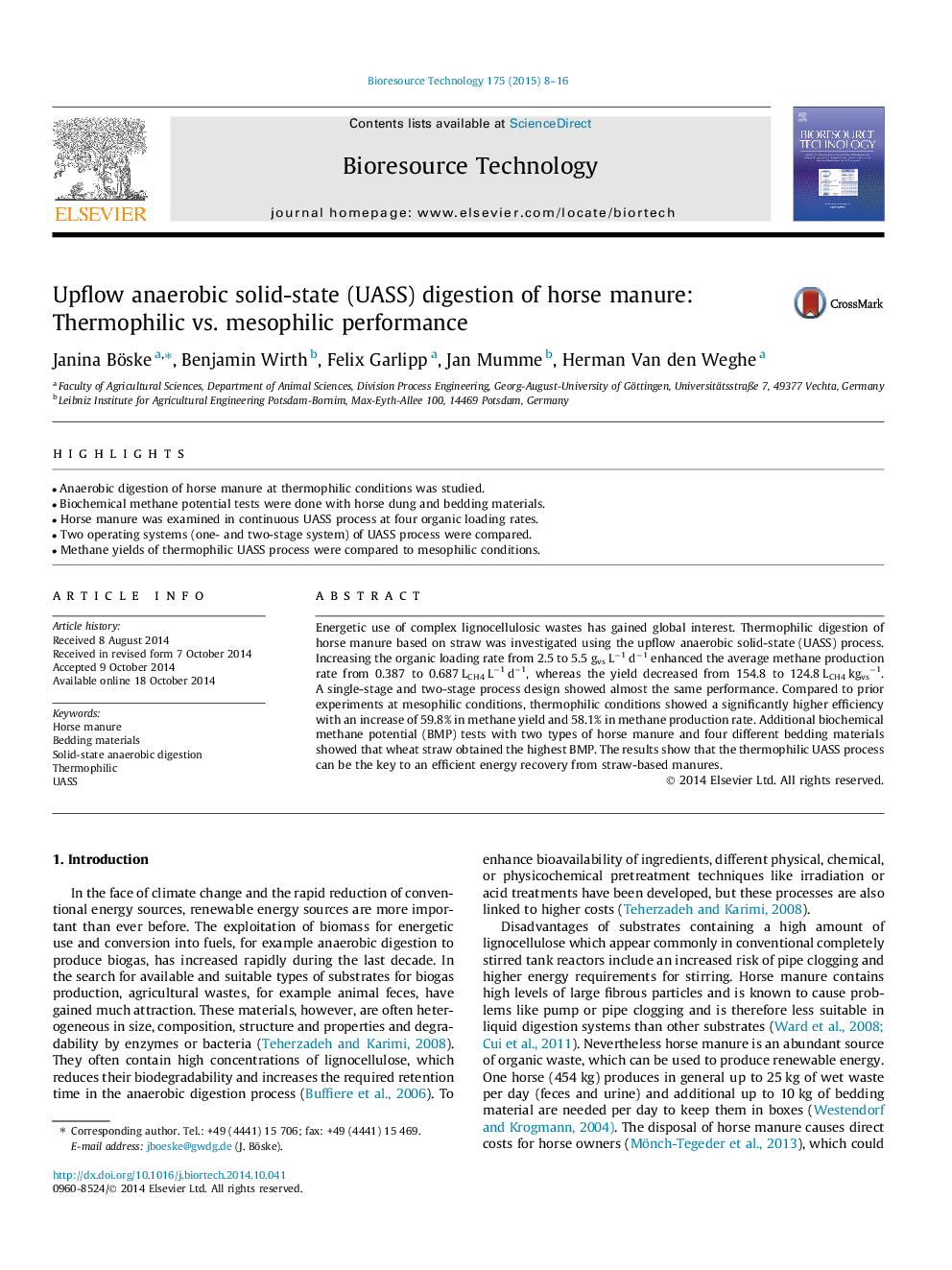| Article ID | Journal | Published Year | Pages | File Type |
|---|---|---|---|---|
| 680257 | Bioresource Technology | 2015 | 9 Pages |
•Anaerobic digestion of horse manure at thermophilic conditions was studied.•Biochemical methane potential tests were done with horse dung and bedding materials.•Horse manure was examined in continuous UASS process at four organic loading rates.•Two operating systems (one- and two-stage system) of UASS process were compared.•Methane yields of thermophilic UASS process were compared to mesophilic conditions.
Energetic use of complex lignocellulosic wastes has gained global interest. Thermophilic digestion of horse manure based on straw was investigated using the upflow anaerobic solid-state (UASS) process. Increasing the organic loading rate from 2.5 to 5.5 gvs L−1 d−1 enhanced the average methane production rate from 0.387 to 0.687 LCH4 L−1 d−1, whereas the yield decreased from 154.8 to 124.8 LCH4 kgvs−1. A single-stage and two-stage process design showed almost the same performance. Compared to prior experiments at mesophilic conditions, thermophilic conditions showed a significantly higher efficiency with an increase of 59.8% in methane yield and 58.1% in methane production rate. Additional biochemical methane potential (BMP) tests with two types of horse manure and four different bedding materials showed that wheat straw obtained the highest BMP. The results show that the thermophilic UASS process can be the key to an efficient energy recovery from straw-based manures.
